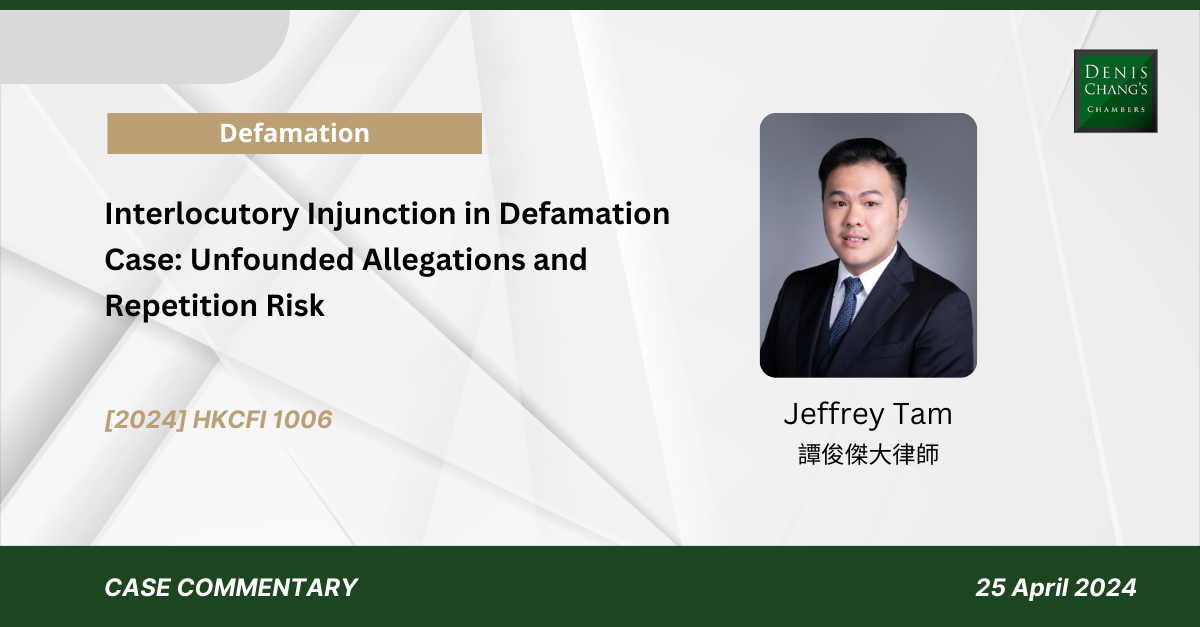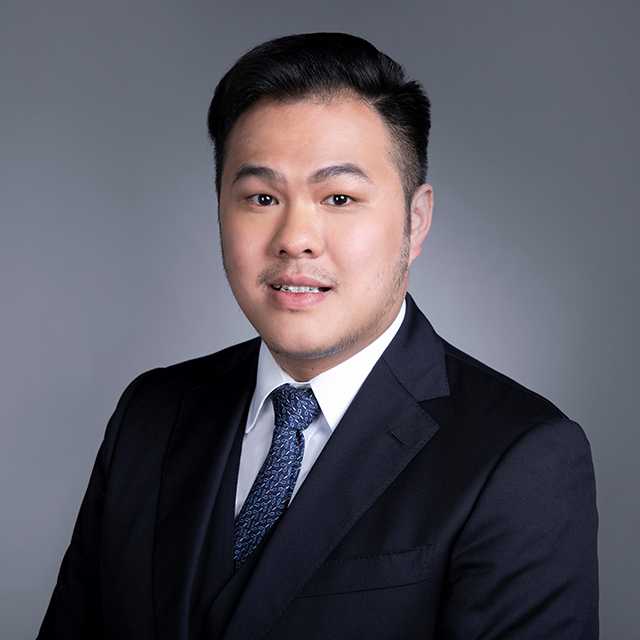
Interlocutory Injunction in Defamation Case: Unfounded Allegations and Repetition Risk
Jeffrey Tam (together with William Kwok) acted for the successful Plaintiff in her application for an injunction in Poon Ki Chi (潘麒智) v Poon Chuk Hung Jason (潘焯鴻) (HCA 514/2024) [2024] HKCFI 1006, wherein Deputy High Court Judge Kent Yee granted an interlocutory injunction against the Defendant to prevent his further publication of three defamatory statements.
The Defendant is a well-known political commentator who acted as the whistle-blower in the Sha Tin-Central rail link construction scandal. He is also a Youtuber whose YouTube channel is “中科媒體 Chinat Media” and one of the directors of Chinat Engineering Limited (中科工程有限公司). On various dates in March 2024, he published the three defamatory statements in question on his Facebook page, “潘焯鴻 Jason Poon” and on his YouTube channel.
As regards the grant of interlocutory injunction in defamation cases, the Court confirmed that the well-established principles in American Cyanamid are equally applicable, save that “special considerations” have to be taken into account, given the importance of free speech [15]-[16]. Under the heightened scrutiny, an interim injunction in the context of defamation cases would only be granted where (i) the statement under complaint is unarguably defamatory; (ii) there are no grounds for concluding the statement may be true; (iii) there is no defence which might succeed; and (iv) there is evidence of an intention to repeat or publish the defamatory statements [17].
The Court was of the view that the defamatory statements published by the Defendant are very serious allegations, which are unarguably defamatory and objectively groundless [19]-[21]. The Court further noted that the Defendant did not put up or suggest any possible defence to the action [22].
Notably, the Defendant purported to change the setting of the YouTube videos containing the defamatory statements in question from public to private. Nevertheless, the Court agreed that private videos are still open to be viewed as the Defendant can have control over the composition of his audience and, in any event, the setting can be reverted back to public by the Defendant if not restrained by the Court [24]. It was thus accepted by the Court that the Defendant does have an intention and/or there is a likelihood that he would repeat or republish the defamatory statements.
Jeffrey Tam

“Jeffrey Tam of Denis Chang’s Chambers has a broad public law practice that spans issues relating to broadcasting, elections, police powers, housing policy and the National Security Law”
“We handled a very high-profile case; he’s a rising star.”
Chambers and Partners Greater China Region Guide 2024, Administrative & Public Law — Juniors, Band 2
Jeffrey Tam, FHKIArb, attended St. Anne’s College at the University of Oxford for a Bachelor of Civil Law (BCL) on a scholarship after reading law at the City University of Hong Kong. He is also named as a “Leading Junior” for Administrative and Public Law in Legal 500 Asia-Pacific 2022-2024.
Visit Jeffrey’s profile for more details.
This article was first published on 25 April 2024.
Disclaimer: This article does not constitute legal advice and seeks to set out the general principles of the law. Detailed advice should therefore be sought from a legal professional relating to the individual merits and facts of a particular case. The photographs which appear in this article are included for decorative purposes only and should not be taken as a depiction of any matter to which the case is related. The views and opinions expressed in this article/material are solely those of the members authoring it and do not necessarily reflect the official policy or position of Denis Chang’s Chambers, or of any other member or members of Denis Chang’s Chambers.